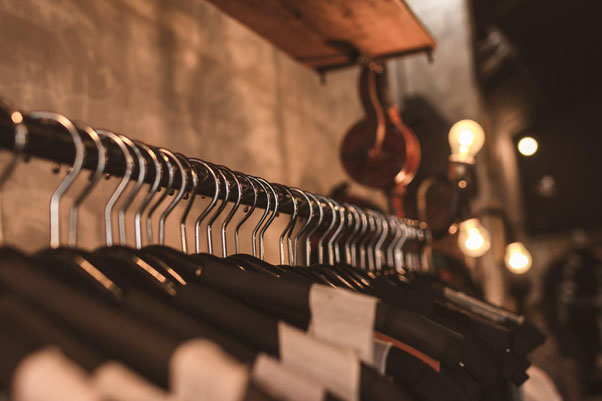
 Millennials are changing the world, and the world is changing for millennials. Whether they like it or not, every industry has had to adapt to the unique qualities and tastes of this new generation. Of course, the fashion industry is not an exception, and may even reflect a unique manifestation of the rapid changes brought about by this rising demographic of consumers. Here, we will look at how millennials are influencing and shaping the way the fashion world works.
Millennials are changing the world, and the world is changing for millennials. Whether they like it or not, every industry has had to adapt to the unique qualities and tastes of this new generation. Of course, the fashion industry is not an exception, and may even reflect a unique manifestation of the rapid changes brought about by this rising demographic of consumers. Here, we will look at how millennials are influencing and shaping the way the fashion world works.
No logos, no problem
In recent years, luxury brands have had to re-examine their approach to the growing millennial market, who have no desire for flashy designer logos. Although they are a generation built on selfies and Facebook stories, appearances don’t seem to matter when it comes to what used to be the ultimate status symbols.
Indeed, millennials have been giving classic luxury brands a run for their money. Gucci’s sales dropped by 1.1% in 2014, while Prada’s showed a decrease of 1.5% — a slump that luxury designers in the industry fear will only get worse. Brands like Abercrombie and Fitch and Michael Kors have removed their previously ubiquitous brand logos on some pieces completely to adapt to the millennial’s fashion preference, embracing the movement towards logo-less but high-quality fashion items.

Green is the new black
The ramifications of fast fashion on the environment and on factory workers are starting to catch up to the industry, as more and more millennials are choosing brands that have an ethical approach to production. Entrepreneur reports that millennials have become hyperaware of brands’ corporate social responsibility efforts, and will abandon companies that do not participate in programs that contribute to society. Indeed, cruelty-free is no longer just a buzzword in the fashion world, but something industries are shifting to in order to stay ahead of the curve.
According to a poll by Nielsen, 73% of millennials are willing to pay more for brands that focus on sustainability — that’s three out of four of the survey’s 30,000 respondents. For this generation, clothes have to suit personal advocacies as well, putting the pressure on companies to go green or go bankrupt.
Into the digital cart
High-tech fashion has escaped from sci-fi fantasies and into everyday life, with tech-savvy millennials blurring the line between technology and the fashion industry today. It’s not just smart watches or 3D printed shoes either — technology has revolutionised the way the fashion industry produces, advertises, and sells.
A study by BigCommerce shows that two out of three millennials prefer shopping online than shopping in a physical store. This preference is reflected in the several applications dedicated to promoting the latest fashion pieces and trends. Meanwhile, Pretty Me enumerates some of these key apps that have revolutionised how millennials think about their wardrobes and buy clothing online. Fashion retailers are also relying on big data analytics to monitor sales and predict consumer needs, producing stylish clothing even before the hashtags start trending.
Not like other girls
If the '80s were dominated by Madonna-esque vibrant colours, and the '90s defined by plaid tops and distressed jeans, the current trend for the typical fashionable millennial is individuality.
There seems to be a lack of overarching definition for the millennial’s style, as they often tend to mix styles according to their personality. They could pull off a sleek bomber jacket paired with four-inch stilettos and a feminine floral top — all because millennials aren’t shy about showing off their individuality through the uniqueness of their looks. Brands like Burberry and Fendi have responded to this by releasing exclusive and limited-edition items, even going so far as to allow customisation of colours.
The fashion world is finding that new trends are popping up every second, exponential changes made possible by social media and technology. As big names in fashion race to adapt to the millennial’s need for individuality and sustainability, one can only wonder what new styles and parameters this generation will set in the coming months, days, or on the next trending Instagram post.
- 1
- 2
- 3
- 4
- 5
- 6
- 7
- 8
- 9
- 10
Ralph Lauren defies luxury norms with 10% revenue rise as peers falter
In a retail landscape increasingly defined by normalization, industry jargon for stagnant growth and cautious consumer spending, Ralph Lauren Corporation... Read more
A new chessboard in textiles, US, Bangladesh and India
In early February 2026, a landmark reciprocal trade agreement between the US and Bangladesh was concluded, marking a new chapter... Read more
18% deal gives India edge in US home textiles market
By early 2026, the mood across India’s home textile clusters, from Panipat’s terry towel hubs to Ichalkaranji’s spinning belts and... Read more
Rising rPET demand and high-performance fibers reshape polyester industry dynami…
The global textile and apparel ecosystem is entering a decade marked by unprecedented capacity expansion and evolving sustainability imperatives. Industrial... Read more
Budget 2026: Surat-Dankuni corridor and yarn banks set to reshape India’s textil…
The Union Budget 2026-27 has moved beyond subsidies and incremental incentives and instead attacked the sector’s three most persistent constraints... Read more
Next accelerates York flagship opening with high-velocity retail model
Next is overhauling its brick-and-mortar strategy, with its upcoming York store opening tracking significantly ahead of schedule. The retailer is... Read more
Burlington Stores signals strategic shift with regional realignment and 110-stor…
Burlington Stores, Inc has initiated a major operational realignment as it enters the 2026 fiscal year, prioritizing high-efficiency store formats... Read more
India-EU FTA 2026: The $100 bn textile opportunity and Turkey’s exclusion
In a manoeuvre that could redefine global textile trade, India has secured a strong advantage in the recently concluded India-European... Read more
Dhaka to Hanoi on alert as India gains the tariff edge
For years, India’s textile exporters fought global competition with one hand tied behind their backs. While its factories matched global... Read more
US-India Trade Reset: Apparel and textiles set for high-volume comeback as tarif…
The high-stakes trade standoff between Washington and New Delhi has reached a decisive turning point. Following a strategic dialogue between... Read more










